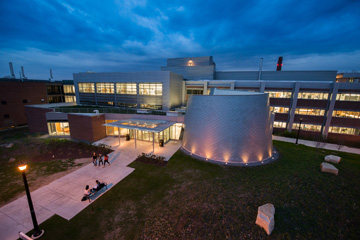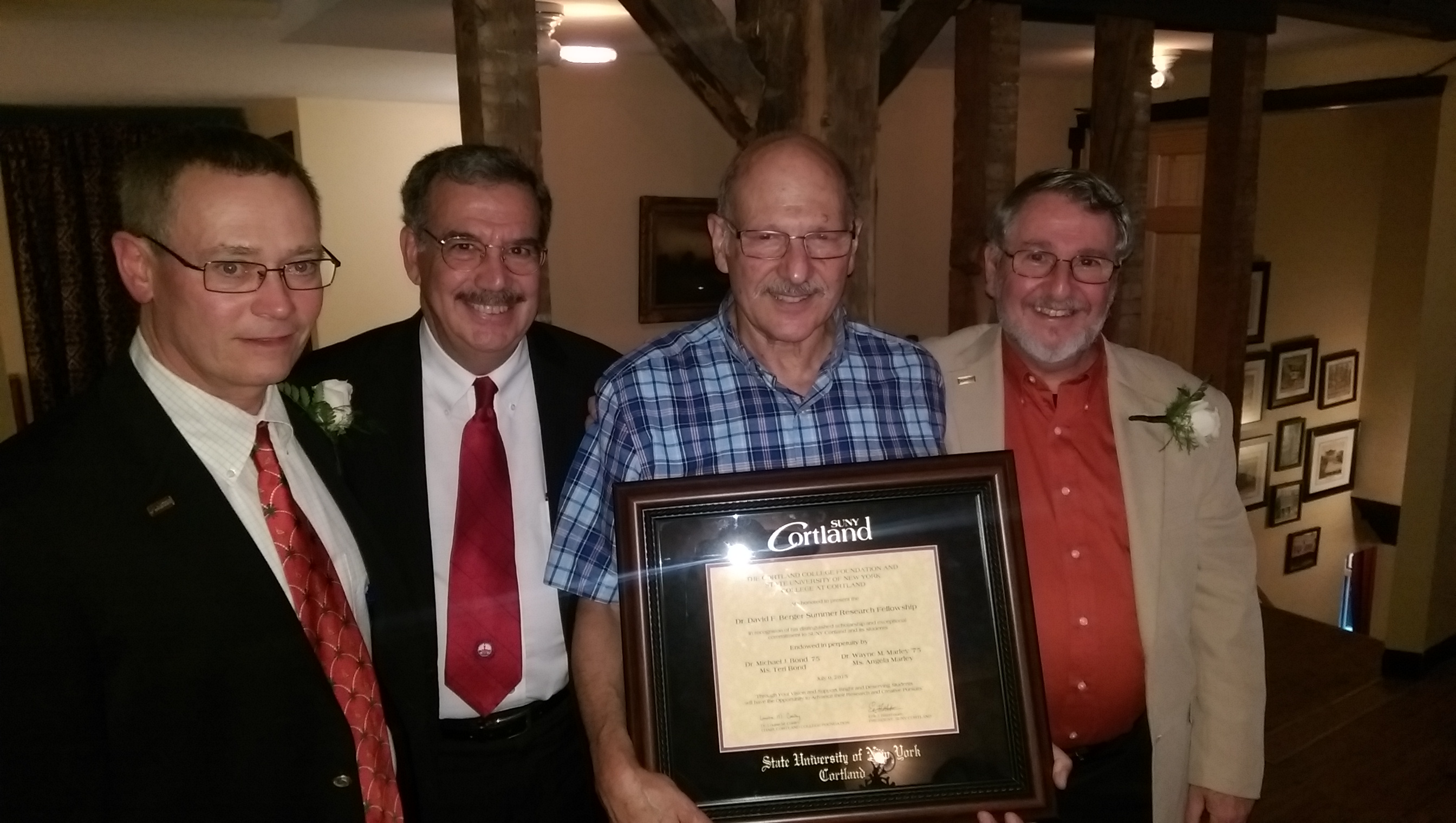
02/25/2016
When Michael Bond ’75, M.D., thinks back to the interviews that gained him admission to medical school, he credits independent research as the single most important undergraduate experience that clinched his spot.
“We had the grades and we took the right courses, but what set us apart was our independent research,” said Bond, also referring to former classmate and longtime friend Wayne Marley ’75, M.D. “When we started talking about the depth and breadth of our work, (the admissions staff) was astounded.”
Bond and Marley met when they were SUNY Cortland freshmen in their second semester. Over the next three and a half years, they conducted research alongside Professor Emeritus of Psychology David Berger. The two attended SUNY Upstate Medical University together and went on to successful careers in dermatology: Bond in pediatrics and Marley in surgery.
“We’ve done some really great things together in the field,” said Bond, crediting his colleague with pioneering skin procedures that were once surgically unimaginable.
Now, more than 40 years after their lives first intersected, the former classmates have established the David F. Berger Summer Research Fellowship — a tribute to one of the earliest catalysts for their success and to the professor who made it possible. The annual award will be presented to the College’s top undergraduate student pursuing independent research in biology, chemistry or psychology.
 |
| Pictured left to right: Wayne Marley ’75, M.D.; College President Erik J. Bitterbaum; Professor Emeritus of Psychology David Berger; Michael Bond ’75, M.D. |
“With more and more students looking to go on to graduate school, this type of funding can give SUNY Cortland’s best students an even better chance of getting in to competitive programs,” said Bond, who lives in The Villages, Fla. “It’s about providing opportunity and independence.
“When we were at Cortland, we were helping design the research with Professor Berger, not just watching him or reading about it from a textbook.”
Today’s SUNY Cortland students tackle relevant topics in a similar way across all disciplines. They study how the bacteria that causes Legionnaire’s disease grows with other bacteria found in water. They analyze verbal and written language fluency among immigrant children. Their research even takes them on archaeological investigations to the Byzantine site of Çadir Höyük in Turkey.
Bond believes this type of scholarly work brews passion and purpose along with curiosity and creativity. When he returns to campus, his favorite visits are with science faculty members like Berger. Whether current or retired, he notices they always seem willing to include students on their best work.
“Independent research is what catapulted me,” he said. “I want today’s students to have that same experience.”
This story was first published in the Cortland College Foundation’s 2014-15 Annual Report.